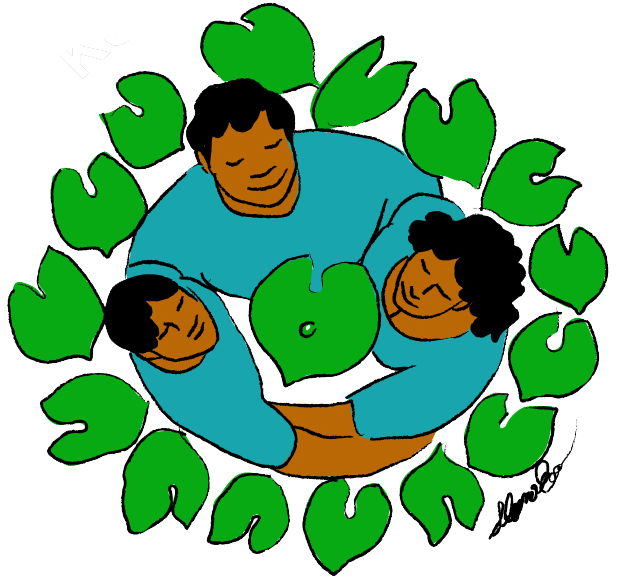Empowering Women, Infants, and Children
WIC Coordinator, Dyan Bautista. Photo courtesy of the KKV Communications Team.
The WIC program is a critical resource for Hawai’i’s mothers and children. It provides supplemental nutritional resources for Women, Infants and Children (WIC). Dyan Bautista, KKV’s WIC Coordinator, got started on this path after graduating from the University of Hawaiʻi at Mānoa with a Bachelor's in Dietetics. During her university years, she volunteered with the WIC main office for the state. There, she fell in love with working with families, and her supervisor asked whether she would like to work for WIC after graduating. Since KKV had an open position, she started out as a nutrition aid. In 2016, she left to continue her education to earn a dietician license. She came back to KKV in 2019 and became the WIC Coordinator the following year.
“I always wanted to come back to KKV,” Bautista says. “Job opportunities were there but very different. At KKV, you feel like a family member.” As the WIC Coordinator, she is an advocate for making sure that patients get the benefits and support that they need. WIC supports pregnant, postpartum, and breastfeeding women and their children up to five years old. Although a big focus on WIC is providing healthy food, Bautista emphasizes that the program stands for much more. It helps families with nutrition education and breastfeeding support, offers guidance with recipes monitoring a child’s growth, and promotes self-care for caregivers. WIC also refers its families to outside services.
Dyan pictured with Nutrition Aides Norma Pascua and Evonne Chen. Photo courtesy of the KKV Communications Team.
KKV’s WIC team includes seven staff members. Besides Bautista, there is one nutritionist, four nutrition aides, and a breastfeeding peer counselor. Samuel Foulchag, the nutritionist, works closely with Dyan to assist in overseeing the clinic’s flow. The four nutrition aides, Evonne Chen, Raily Kansou, Merki Mikel, and Norma Pascua determine patient eligibility for the program and make sure benefits are distributed. Ophilia Chiren, the breastfeeding peer counselor, offers support to mothers interested in breastfeeding. As a mother who also breastfed, she can act as a peer who understands what moms are going through. She meets mothers in and outside the clinic.
Bautista has many stories that make her proud of what she does, but one that stands out concerns a patient who was pregnant while her husband was in the military. Moving to Hawaiʻi from out of state, the patient had no family members around her to rely on. After she delivered her baby, she felt overwhelmed and isolated, and was having a hard time breastfeeding. Through the support of Bautista and the breastfeeding peer counselor, she was no longer alone. With new assistance and encouragement, she ended up breastfeeding exclusively.
Bautista shares this story because many people assume that WIC is only about free food. But it’s not just about the food; it’s about making important, long-lasting connections in community. “The most meaningful part of my work is building relationships with staff and patients,” Bautista says. “That’s where I get my strength, and it reminds me of why I’m working here in the first place.”






